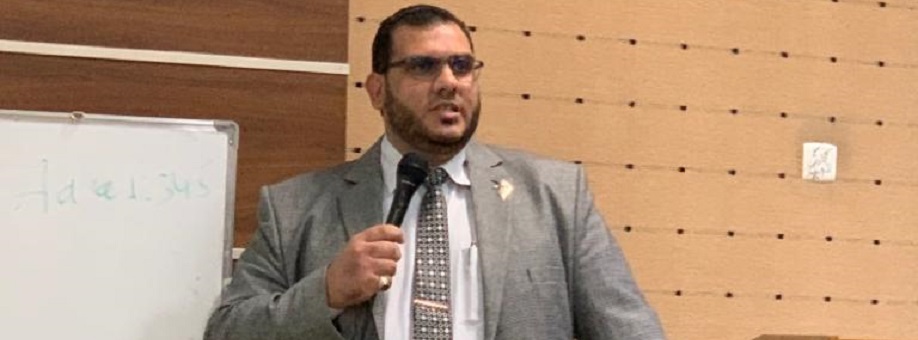FLT and Engineering Students Convene to Discuss Translation in the Modern World
On October 1, 2019, the English Club and Engineering Club hosted Dr. Eyhab Bader Eddin, MITI, MCIL, CL, for a workshop entitled 'Translation: A Broad Overview Weaving Its Threads Together'. More than 140 students attended the event at 11 am in Auditorium 4, and another 100 watched it on Twitter as it was broadcast live. The purpose of the event was to discuss the history, uses, importance, the distinction between translation and interpreting, sub-divisions of interpreting, characteristics of them, and the development of translation as an interdisciplinary science. The workshop introduced students to real examples of simultaneous and consecutive interpreting, highlighting their difficulties. He also explained how 'ear-voice span', technically known as decalage is one of the most spectacular and mysterious aspects of the profession of simultaneous interpreting. He touched upon House's 2009 terms of 'forwards' and 'backwards' orientation of translation. The Deanship of Student Affairs sponsored the event in conjunction with the aforementioned student clubs.
Dr. Bader Eddin began with a brief history of translation. His overview described how translation has become increasingly important due to the development of modern transportation and communication systems, noting that a communicative event takes place once, but with translation it takes place twice as the communicative event is reduplicated. "Over the millennia, the world has become much smaller and this trend has only accelerated in present times,” he said. Today's businesses and commercial agreements would not be made without translation. He pointed out that the Translation of the Hebrew Bible into Greek at the request of Ptolemy II is seen as the earliest extant traces of Translation. The fruit of that work yielded 'The Septuagint', a work of 70 translators who, according to the legend, were commissioned to translate the Hebrew Bible, each in solitary confinement in a cell, to come up with an identical translation. On the other hand, Dr. Bader Eddin showed that the need for specialized translation skills has greatly increased with technological advancements, showing a list of recommended dictionaries to be possessed by students. Specialized translators are in high demand in many fields, especially in engineering.
Increased globalization, coupled with technological advancements, has greatly affected the field of translation. As the speed of communications and commerce have increased, the need for highly skilled translators has increased as well. "Modern translators must be able to weave both technical jargon and language that is not directly translatable into ideas that the receiving party understands completely. Moreover, this must be done quickly, often in real-time if interpreted," he concluded. A few examples were translated with the attendees as practice, giving some techniques on how to translate headlines of newspapers.
The Faculty of Languages and Translation is dedicated to graduating elite translators and interpreters who can skillfully satisfy the increasing demands of multi-lingual economies. We congratulate both the English and Engineering Clubs for their initiative under the supervision of the Deanship of Student Affairs.
Please click here to browse the powerpoint used in the workshop.
Date: 10/1/2019
Source: Faculty of Languages and Translation

